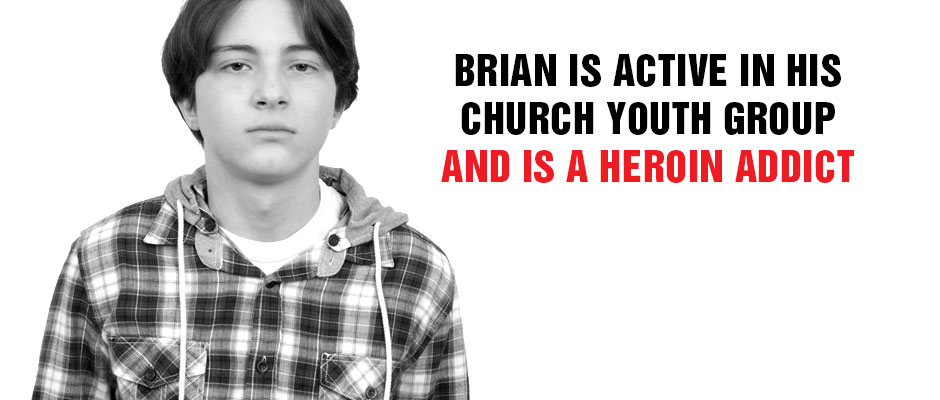What The Hell Do I Do Now?
Twelve Steps to Helping a Loved One with Addiction by Linda L. Verst, BA CPS
I’ve heard it said that “what is urgent is rarely important, and what is important is rarely urgent”. That may be true about most things, but it surely did not feel true to me when my husband was in the midst of a destructive addiction to alcohol and other drugs, or later, when our son developed a terrifying love affair with cocaine. Everything felt urgent. Everything seemed life or death. I lost all perspective on decision making. Everything felt equally important, frightening beyond my coping skills.
We are, according to the media, in the midst of a heroin epidemic, which is defined as an outbreak of a disease that spreads more quickly and more extensively among a group of people than would normally be expected. Many parents, siblings, wives and other loved ones have the urgency I describe.
You may be one of these folks, terrified your beloved son(s) or daughter(s) will die if you make the wrong move. Please understand: You can do all the right things, and he/she may still lose his life. But you can move the odds in favor of her survival by what you choose to do/not do. I’ve studied addiction and preventing addiction close to 50 years, but probably more important to you, I’ve lived through it. I want to share some possible strategies/ideas that help in the hope they will be of service. This is not an all inclusive list and I am not an expert; my ideas are not necessarily listed in order of importance. They come with my fervent prayer for your own recovery, as well as that of your loved one.
- Take steps immediately toward your own recovery. You’ve probably been missing sleep, meals and recreation. Find a way to take better care of yourself. When there is addiction in a family it throws every thing and everyone out of balance. Cancer affects family members; so does addiction; this is what the experts mean when they call it a family disease. There are no “normal” coping skills for an abnormal disease. Restore your own balance. As an Al-Anon Public Relation ad once said: You can see what it’s doing to him/her. Can you see what it’s doing to you?
- To that end, find a good 12 Step group. Nar-Anon is for family members and friends of addicts. Al-Anon is for family members and friends of alcoholics. If it’s an addiction other than alcohol, and you can’t find a Nar-Anon group close by, go to Al-Anon. It’s been around longer, and as a result there are more established groups to choose from. The only requirement for Al-Anon membership is that you have a friend or relative with an alcohol problem. Who doesn’t?! Just remember everything said about coping with alcoholism applies to other addictions as well. Listen and learn. Remember: Nar-Anon and Al-Anon are self-help groups and not made up of perfect people. Go to at least 6 meetings before you decide it’s not for you. Find the one where you feel safest and get a phone list of members. Find them on line or in the phone book.
- Before and after meetings, talk to 12 step friends; they will have ideas of places to go for further help. I once had an Al-Anon friend who could quote the price of a broken telephone pole – with or without transformer. These people can help restore your sense of humor.
- Do not take on any responsibility that is not yours. Repeat this to yourself as many times as it takes. He’s in jail? Not your responsibility. He owes someone money? Not your responsibility. She’s hungry? Tired? Unemployed? Not your responsibility. Repeat the following, too: The longer I do for someone anything that they should be doing themselves, the longer I am aiding and abetting the disease of addiction. Got that? You are helping him stay sick and get sicker, and avoid recovery and sobriety. When you stop this stuff, you are not being cruel, you are loving her. Repeat that, too. You know why? Because your addict will not be happy. Call your 12 Step friends; they will support you.
- Find out where good inpatient and outpatient treatment facilities, therapists and the like are in your community and state/surrounding states. Check out more than one or two before you settle in for where you’ll go for help and support. Check on cost, who pays; what the loved one’s insurance may cover. Trust your gut – you will know who you can work with. Some healers are not quite as well as they need to be to help you. My husband and I went through 9 psychiatrists before we found one who treated us like part of the solution in treating a mental illness that escalated after sobriety.
- Be honest with yourself and the person you love, whose addiction is causing you strife. Sometimes, as when he is presenting convincing schemes, all of which lead down the road to your pocketbook, the best thing you can say is: “I love you but I cannot help you. I do not have money for you.” Repeat once or twice if you must. Then leave the room, hang up the phone, don’t return the text. Trust me, she heard you the first time.
- If your loved one with an addiction has keys to your home or even if he doesn’t, lock up anything you do not want stolen. Addiction causes a loss of conscience for many. Especially, lock up guns, knives, electronic devices that can be easily removed, family heirlooms and medications. Your loved one may not steal your belongings, but if she’s using, she has friends who will. If something is stolen from your home, report it to the police immediately. If you suspect where the items are, or who took them, tell the truth. This is no time for protecting someone from facing consequences. Arrest and jail can be a safe place for an addict. If it was cancer, you would take him to a hospital. Think of it that way.
- Be assured of the following: You did not cause this illness; you cannot cure this illness; you cannot control this illness. You can cope with it. Put your energy there.
- Again, addiction, whether in your child, spouse or other loved one is not your fault. We make amends when necessary, but each person is responsible for his own behavior believe that no parent ever held an infant in her arms and whispered into the baby’s ear “I can’t wait to see how much I can screw up your life.” An Al-Anon writer’s remarks in response to a grown child, ranting about her upbringing went something like this: “Yes, dear, some of your problems have my name on them, but ALL the solutions have your name on them.
- Sometimes I think the American way is to throw money at problems. Please understand that this problem in your life is going to require time and energy, love, compassion, patience. Your loved one may not be ready for help or guidance, but you can get it. It will help you. It’s worth every penny and every hour; Al-Anon and Nar-Anon are free!
- Want to take action? An intervention is best done with professional help. The Alcoholism Council of Greater Cincinnati is a great place to start, no matter where you are in the process. Call 513 281 7880 or go to www.alcoholismcouncil.org
Casey’s Law now exists in OH and KY. “The act provides a means of intervening with someone who is unable to recognize his or her need for treatment due to impairment. This law will allow parents, relatives and/or friends to petition the court for treatment on behalf of the substance abuse-impaired person.” This quote is from operationunite.org/treatment/caseys-law. Go there for more information. - Take time to slowly, mindfully study the above 11 suggestions. Begin to practice one or two. Breathe. Try not to let your urgency pull you immediately to #11. It’s placed there for a reason. If you want the possibility of long lasting effects, it helps to prepare carefully. Are you a person of faith? Now’s the time to put your beliefs to the test. This will likely be one of the most difficult, challenging issues you’ve ever had to turn over to God. The time to begin is now.
Linda Verst is a KY Certified Prevention Specialist with international reciprocity. While she still teaches Prevention topics and workshops, she is retired. Widowed, with 5 adult children and 9 grandkids, she volunteers with Kenton County Detention Center, Kenton County Sheriff’s Dept. and Grateful Life Center in NKY. Her hobbies are yoga, painting, singing, reading, gardening and sharing joy with her dear family and friends.

